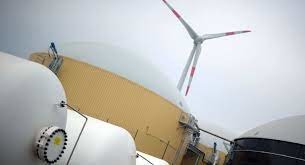SANAA, Sept. 05 (YPA) – Press reports revealed Russia’s desire to develop hydrogen energy to become a major player in the global hydrogen market.
According to what was published by the Finnish newspaper Kauppalehti, and we are killing him, the Russian news agency Sputnik said, “For many years, Russia has been actively discussing the possibilities of becoming the main country in the hydrogen markets, and its growth rates are very impressive.” Last August, Russia wanted to become an important player in the hydrogen market in Europe and Asia.
Hydrogen sales in global markets are expected to rise from the current 127 billion euros to 186 billion euros in 2028. The annual growth will be 5.6%. And this is only the beginning.
Russian Deputy Prime Minister Alexander Novak predicts that in the future the country’s share in the international hydrogen market will reach 20%.
In the adopted plan for hydrogen energy development, a strong dispersion of indicators can be observed, indicating the unclear pace of development of the field. According to the plan, in 2035 Russia can export from 2 to 12 million tons of hydrogen, and in 2050 – from 15 to 50 million tons per year. Russia now produces only two million tons of hydrogen annually.
The Russian giant “Gazprom” wants to organize hydrogen production in Europe, and the proposal was put forward to Germany as an option. This idea may be related to the fact that “Gazprom” doubts the safety of transporting hydrogen through the already existing gas pipeline.
A project to develop hydrogen energy in Russia will be developed in three phases. From 2021 to 2024, hydrogen production will be increased throughout Russia. The goal is to reach the export volume of 200 thousand tons. From 2025 to 2035, the first commercial tests will take place, and hydrogen technologies will become more widespread in society.
Until 2050, production will be increased to meet global hydrogen demand.
If this strategy succeeds, it will act as a shock absorber for Russia when global demand for oil and gas declines. Most likely, the Kremlin will promote this project very actively, because for Russia it is the straw that can rise to the top of a wave in the event of a change in energy resources.


